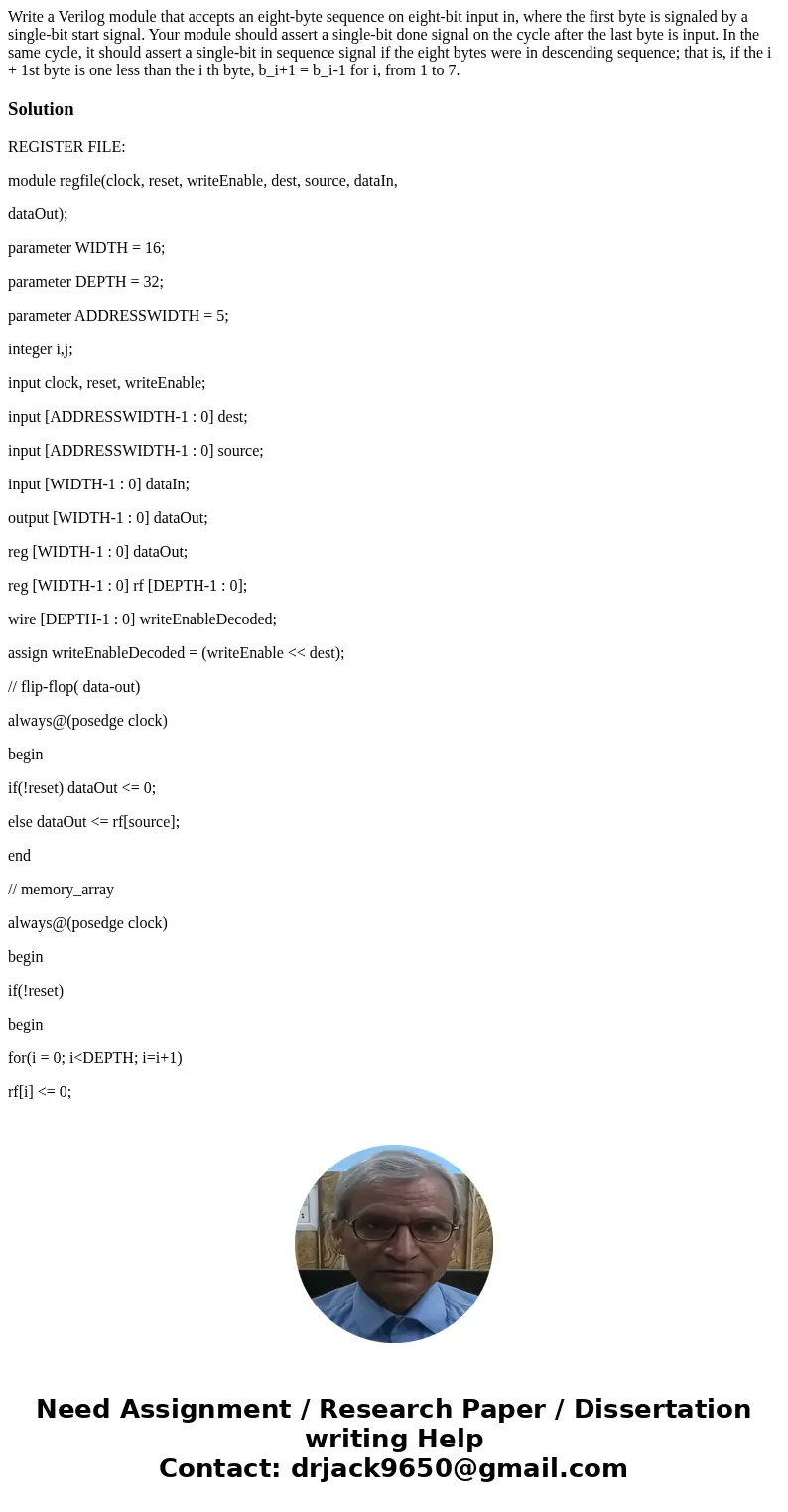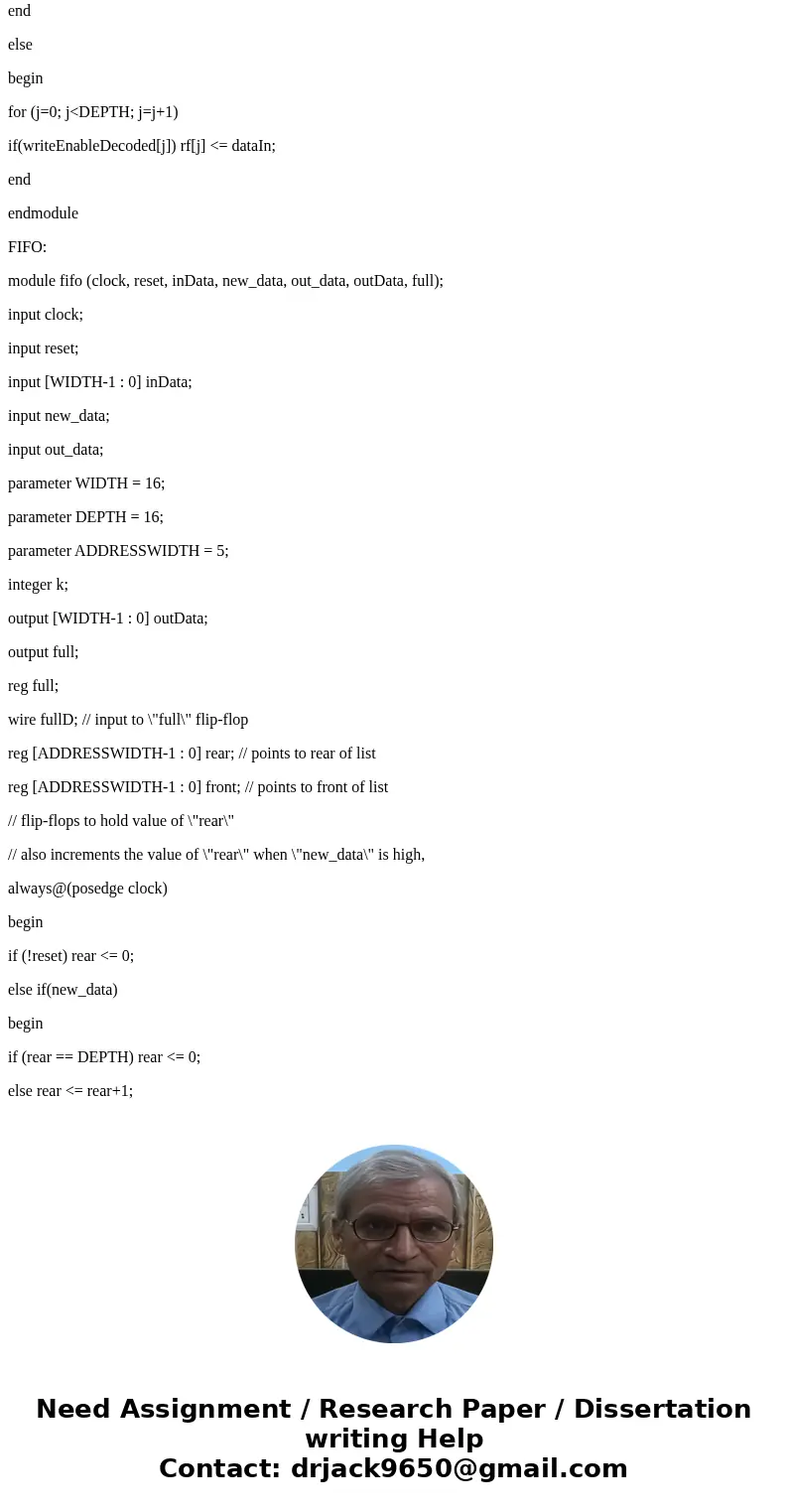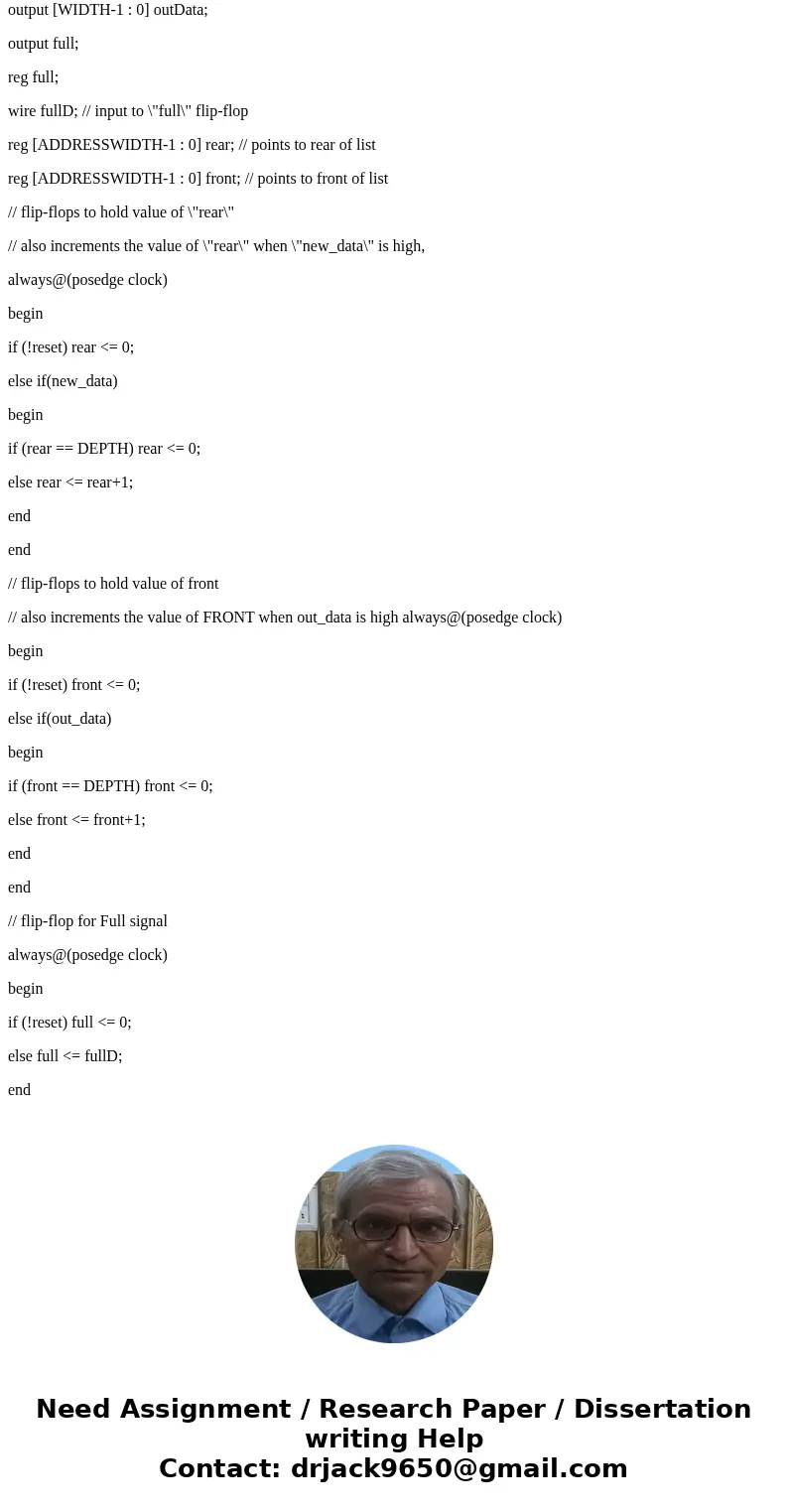Write a Verilog module that accepts an eightbyte sequence on
Solution
REGISTER FILE:
module regfile(clock, reset, writeEnable, dest, source, dataIn,
dataOut);
parameter WIDTH = 16;
parameter DEPTH = 32;
parameter ADDRESSWIDTH = 5;
integer i,j;
input clock, reset, writeEnable;
input [ADDRESSWIDTH-1 : 0] dest;
input [ADDRESSWIDTH-1 : 0] source;
input [WIDTH-1 : 0] dataIn;
output [WIDTH-1 : 0] dataOut;
reg [WIDTH-1 : 0] dataOut;
reg [WIDTH-1 : 0] rf [DEPTH-1 : 0];
wire [DEPTH-1 : 0] writeEnableDecoded;
assign writeEnableDecoded = (writeEnable << dest);
// flip-flop( data-out)
always@(posedge clock)
begin
if(!reset) dataOut <= 0;
else dataOut <= rf[source];
end
// memory_array
always@(posedge clock)
begin
if(!reset)
begin
for(i = 0; i<DEPTH; i=i+1)
rf[i] <= 0;
end
else
begin
for (j=0; j<DEPTH; j=j+1)
if(writeEnableDecoded[j]) rf[j] <= dataIn;
end
endmodule
FIFO:
module fifo (clock, reset, inData, new_data, out_data, outData, full);
input clock;
input reset;
input [WIDTH-1 : 0] inData;
input new_data;
input out_data;
parameter WIDTH = 16;
parameter DEPTH = 16;
parameter ADDRESSWIDTH = 5;
integer k;
output [WIDTH-1 : 0] outData;
output full;
reg full;
wire fullD; // input to \"full\" flip-flop
reg [ADDRESSWIDTH-1 : 0] rear; // points to rear of list
reg [ADDRESSWIDTH-1 : 0] front; // points to front of list
// flip-flops to hold value of \"rear\"
// also increments the value of \"rear\" when \"new_data\" is high,
always@(posedge clock)
begin
if (!reset) rear <= 0;
else if(new_data)
begin
if (rear == DEPTH) rear <= 0;
else rear <= rear+1;
end
end
// flip-flops to hold value of front
// also increments the value of FRONT when out_data is high always@(posedge clock)
begin
if (!reset) front <= 0;
else if(out_data)
begin
if (front == DEPTH) front <= 0;
else front <= front+1;
end
end
// flip-flop for Full signal
always@(posedge clock)
begin
if (!reset) full <= 0;
else full <= fullD;
end



 Homework Sourse
Homework Sourse